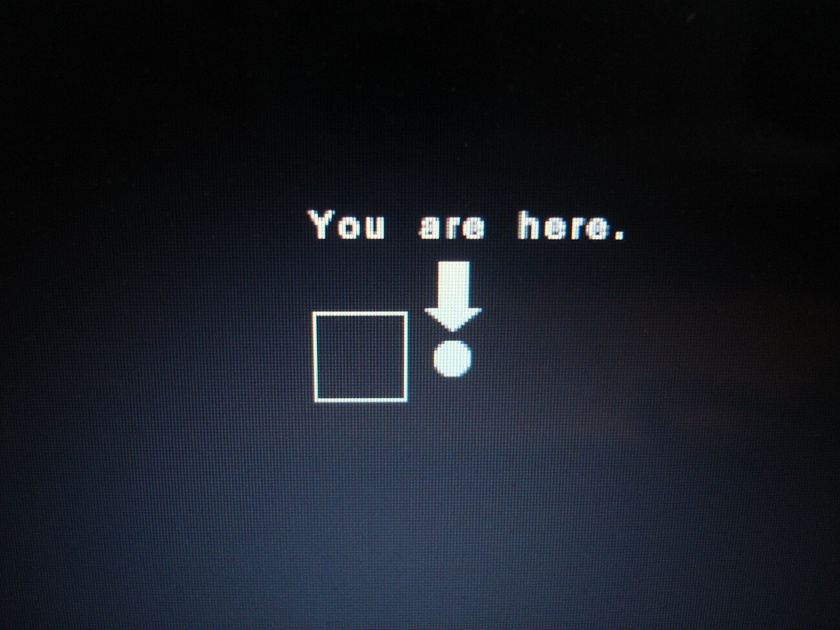
“Can I Become Spontaneously Psychotic?”
Lili Bernstein Goralnick, LCSWR-CCTP
It’s a question people are asking right now, and they are seeking concrete, concise and reassuring answers. Here is a guide for clinicians to help educate their clients, and for clients seeking information.
We’re living in a quick-and-easy solutions society, so here’s the quick answer: it depends… on VERY specific and mostly controllable factors. Information is control, information is power. I am about to give you a dose of both.
The Most Important Thing to Know About Psychosis:
When treated very quickly (within a day or two) with anti-psychotic medication, brain damage due to psychosis (any cause) can be prevented. Without this brain damage, the likelihood of more episodes goes way down.
When Do People Become Psychotic?
There are very specific, limited and rare circumstances in which a person will become psychotic. The brain is not like a laptop computer or a toaster than will suddenly, inexplicably stop working properly. The brain follows a genetic code and responds in specific ways to chemicals given to it (also dictated genetically). The limited set of illnesses that can lead to psychosis are as follows:
Severe Developmental Disability: If the brain is severely deformed, it will malfunction in many ways. Some people with Mental Retardation and Developmental Disabilities are psychotic. They can often be given anti-psychotic medication to control it.
TBI: Traumatic Brain Injury can be caused by a severe hit to the head, stroke or brain infection (including COVID). People with TBI sometimes need to take anti-psychotic medication to stay stable.
Schizophrenia: According to the WHO, the incidence of this genetic illness effecting brain functioning in many ways is .45% , or less than half of a percent of the population. It runs in families and is characterized by psychosis and cognitive decline, with onset usually in the late teens but often with premorbid cognitive decline and personality dulling in earlier years. This is a degenerative illness in all cases, (like Alzheimer’s) and requires the patient to remain on anti-psychotic medication their whole life. Schizophrenia has a few subtypes, including Disorganized, Paranoid, Catatonic and Undifferentiated (a mix) that look different, but all include psychosis (though people who are catatonic can often appear very still and quiet). Not all Schizophrenia symptoms can be fully controlled with medication, but it certainly helps improve quality of life and slows brain damage. There is no other way to manage this illness besides anti-psychotic medication and very close monitoring.
The Schizoaffective Illnesses: Are much less severe, but can occur in people with Schizophrenia or Bipolar I in the family or extended family. Psychotic symptoms tend to accompany changes in mood, such as Major Depression but people with these illnesses can display in a number of ways, including stable but noticeably odd or eccentric. The incidence is .3%.
Bipolar I: According to the NIH, the incidence of this genetic illness is 4.4%. It runs in families and has a high incidence in the Satmar Chassidic gene pool. It is characterized by high and/or low moods with psychosis, with onset in the late teens/ early twenties, with premorbid cognitive struggles or dulling of personality that may begin in grade school. People with Bipolar I must stay on anti-psychotic medication for life. Likelihood of relapse can be reduced this way, very possibly to zero, whereas people with Bipolar I who go off meds when they “feel better” WILL LIKELY have another episode, either spontaneously, postpardum, accidentally induced by change in sleep schedule or accidentally induced by ingesting the wrong chemicals.
Making Bipolar I Less of a Big Deal:
- Get genetically tested if you are Satmar or if anyone in your extended family, including great grandparents had mental illness. Get on medication if you test positive.
- Get genetically tested (if…same as above) before agreeing to take ANY medication for anxiety or depression or OCD or anything else
- See psychiatrist every 3 months no matter what if you have Bipolar I
- Receive training from a clinician on how to avoid causing an episode around sleep schedule changes, simchas and travel. Meet with them before any of these events to raise medication level
- Receive education from a clinician on substances that cause psychosis in Bipolar I and II, such as cortisone, St. Johns Wart, SSRI’s, marijuana etc. This person should be well-versed on herbal remedies and supplements, which can be very dangerous.
- Take your medicine without stopping or skipping, including pregnancy (though it will likely have to be changed temporarily). Let the doctor know if you are planning a pregnancy and meet monthly to raise meds as your blood volume increases.
- Never take mental health medication from a PCP
Bipolar II: Another genetic illness related to Bipolar I but with less severe mood symptoms. You can have this illness if someone in your family has Bipolar I. Psychosis almost never occurs, but CAN be induced by taking the substances listed above or by major changes in sleep. Does not require a lifetime of medication, except maybe if you have had a severe and lasting psychotic episode, which strongly raises your risk of more psychosis. Follow all steps just above this paragraph to make Bipolar II much less of an issue in your life.
Dissociative Identity Disorder with Amnesia
This is an extremely rare breakdown in personality structure caused by very severe chronic childhood trauma. It involves switching between a variety of absolutely separate and fully-compartmentalized protective selves when trauma is triggered with now awareness of or between parts. In 17 years of treating Complex PTSD and Borderline Personality all day long every day, I'd say that most people with any trauma have parts, but I have never encountered anyone with DID with Amnesia. The dangerous behaviors that occur with DID with Amnesia are usually self-inflicted, and don't fall under the category of "psychotic" in terms of what is happening in the brain chemistry. Most people with DID NOS are already under the care of an inpatient unit or some other intensive monitoring.
Postpartum: Here is our “wild card.” The prevalence is low, .17% of postpartum women. Postpartum psychosis is more likely to occur in people with Schizophrenic or Bipolar genetics (even if you have neither illness). Such people should be closely monitored by a psychiatrist… meaning, if your great uncle or grandmother or someone else had a psychotic illness, get monitored. But it can happen to anyone at all. Even women who have had many pregnancies with no postpartum issues can become psychotic from hormonal changes. Getting anti-psychotic medication on the first day of symptoms is recommended to eliminate the issue. Do not wait to see your OB, call Hatzolah and ask for psych response, or call a psychiatrist.
A rabbi who said he was a clinician recently spoke online and said that “thoughts are only thoughts, thoughts are normal.” That is not the case during postpartum. Disturbing intrusive thoughts should be reported to a psychiatrist (not your OB) quickly. This doesn’t mean panic, it just means get monitored so nothing happens.
So When Do I have to Worry About These Illnesses?
You don’t have to worry, ever. You just need to know what category you fall into and take the steps mentioned above to prevent or quickly eliminate psychosis (often within several hours if caught quickly). This is great news, because it means you have power and control.
If you have had a prolonged psychotic episode or have had more than one psychotic episode, playing it safe by staying permanently medicated and knowing how to care for your sleep and chemical intake will set your mind at ease and allow you to live a normal life. Monthly psychiatrist or therapist check-ins are highly recommended if you fall into this category.
If you don’t fall into any of these categories and didn’t give birth this year, put the whole thing out of your mind and go party. (but don’t do drugs because they can make anyone psychotic). There is no “psychotic fairy” that randomly puts “psychosis powder” on people who are not at all predisposed. You may get upset and anxious when bad things happen in life, but you won’t become psychotic. Simply put, people don’t “crack up” under stress. That’s not how the brain works.
Choosing a Mental Health Professional
A quick note on this: Always choose someone who will TELL you your REAL diagnosis at the end of the evaluation, and has a CLEAR PLAN for your treatment and risk management. This will put you at the least risk, because again, information is power. Referrals should be through a HUMAN, and not computer-based or database-based referral agency, meaning you want a referral agent who personally knows the clinician they are sending you to.
I will close with a general rule of thumb: when you do something, nothing happens. When you do nothing, something can happen.

 Previous
Previous
